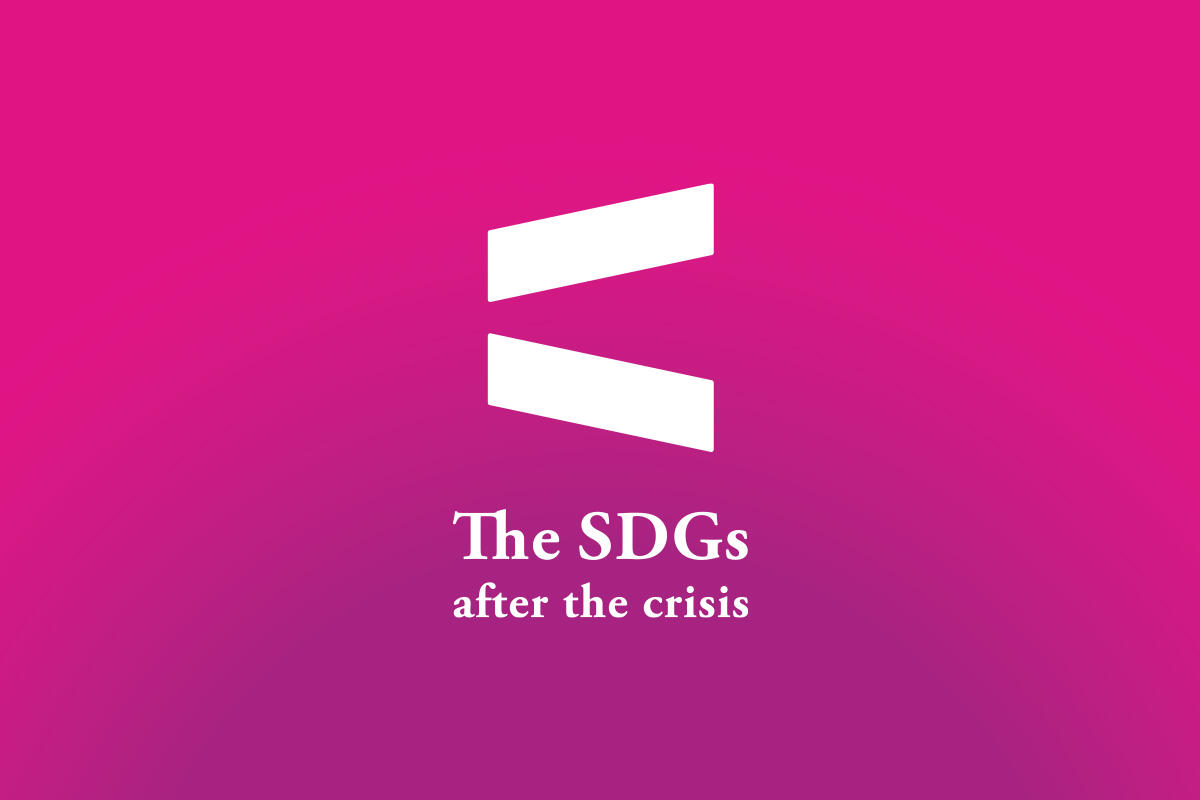From political pundit to the SDGs
In her native Norway, young law scholar Sofie Høgestøl is a media pundit on US politics. However, her interests go way further than that and she was delighted to be asked to moderate the fourth SDG Conference Bergen.

Main content
Associate Professor Sofie Høgestøl’s phone has hardly stopped ringing the past year, with the talented young law scholar being one of Norway’s most in demand experts on US politics. Hardly a day has gone by without Høgestøl dissecting the US election in Norwegian media.
Whereas she never tires of American politics, she now looks forward to speaking about another subject close to hear heart: the Sustainable Development Goals (SDGs). In the role of moderator at the fourth SDG Conference Bergen, she looks forwards to engage scientists, students and other stakeholders in critical debate on the UN 2030 Agenda.
COVID-19 has reinforced inequality
The conference topic is The SDGs After the Crisis, obviously referring to the post pandemic fallout for the 2030 Agenda.
“From my scientific point of view I have noticed two things: First, we as humans have a great capacity to adapt and early on in the pandemic, we showed resilience to get together as a global community. However, this international solidarity has been challenged since we got a vaccine,” she says referring to a growth in so-called vaccine nationalism and a growing divide between the global north and the global south.
“In my research on war and conflict, I see that inequality has increased during the pandemic and that there may be long-term consequences of the pandemic and the vaccine rollout.”
Working across disciplines
SDG10 – Reduced inequalities acts as a hub for the discussions at the conference.
“I believe it’s essential for academia to work across both disciplines and the goals. We are specialists in each our field. By working together and using our varied disciplinary background, we can reach policy makers more easily, she says pointing out that policy makers are ever more concerned with interdisciplinary views in decision making processes.
With her own focus on SDG16 – Peace, Justice and Strong Institutions, she sees synergies with the other goals. She believes “her” goal is ever more important in a topsy-turvy world where democracy, human rights and freedom of expressions are under attack.
“My research is on how to create good legal mechanisms for justice after major war crimes, or crimes against humanity. How do you get a society going again? I study situations after this type of conflict. Take foreign fighters: Should there be an international court, should we prosecute possible war criminals in Norway or use local mechanisms in Syria? What will be the best way to bring about a settlement,” she asks before mentioning that a related line of her research deals with electoral systems and the cornerstones of the institutions that support our democracy.
Everything is connected
SDG16 may be somewhat overlooked in comparison with the more obvious goals on better health, quality education, no poverty and zero hunger. For Høgestøl it’s important to view SDG16 in light of the other goals. Referring to the conference theme, she sees clear synergies between “her” SDG and SDG10 on inequality.
“There is a clear connection between the “big” SDGs and SDG16,” she says giving SDG13 on climate change as an example, “climate change could affect democratic institutions, e.g., changes in geographical territories, both on land and in the ocean. This is why the Paris climate accord of 2015 is one of the most important measures to meet in order to reach the SDGs.”
“The same applies to SDG2 on zero hunger, as we see an increase in hunger post COVID-19. This leads to conflict, inequality and this has the knock on effect of weakening democracy. And this is one of the reasons “my” goal is number 16 and one of the last goals listed. You simply won’t have good institutions, peace and reconciliation without the other goals.”
She hopes that by moderating the SDG Conference Bergen she can contribute to increased visibility for the 2030 Agenda.
“In my role as moderator I wish to lift some exciting threads for discussion, look at all the connections between the goals and generally look ahead. Right now, we are in the middle of this crisis, yet we have to hope that from mid 2021 we’ll be entering a recovery phase. If we allow inequality to take hold after the crisis, the situation could turn dangerous,” she says.
The year science went mainstream
Despite all the troubles of the last year, the young law scholar remains hopeful also believing the pandemic has yielded some positives.
“One of the corona pandemic’s bright spots is that after a violent period of fake news, we now see how research can solve the crisis. Researchers have developed new vaccines at record speeds. Science and research have been put on the agenda in a way I cannot remember having experienced in my lifetime, says Sofie Høgestøl, “we have been able to follow research from minute to minute. People have seen the scientific process associated with the vaccines up close. This has shown how crucial research and science are for society. I hope we can continue this positive dynamic after the corona crisis.”
